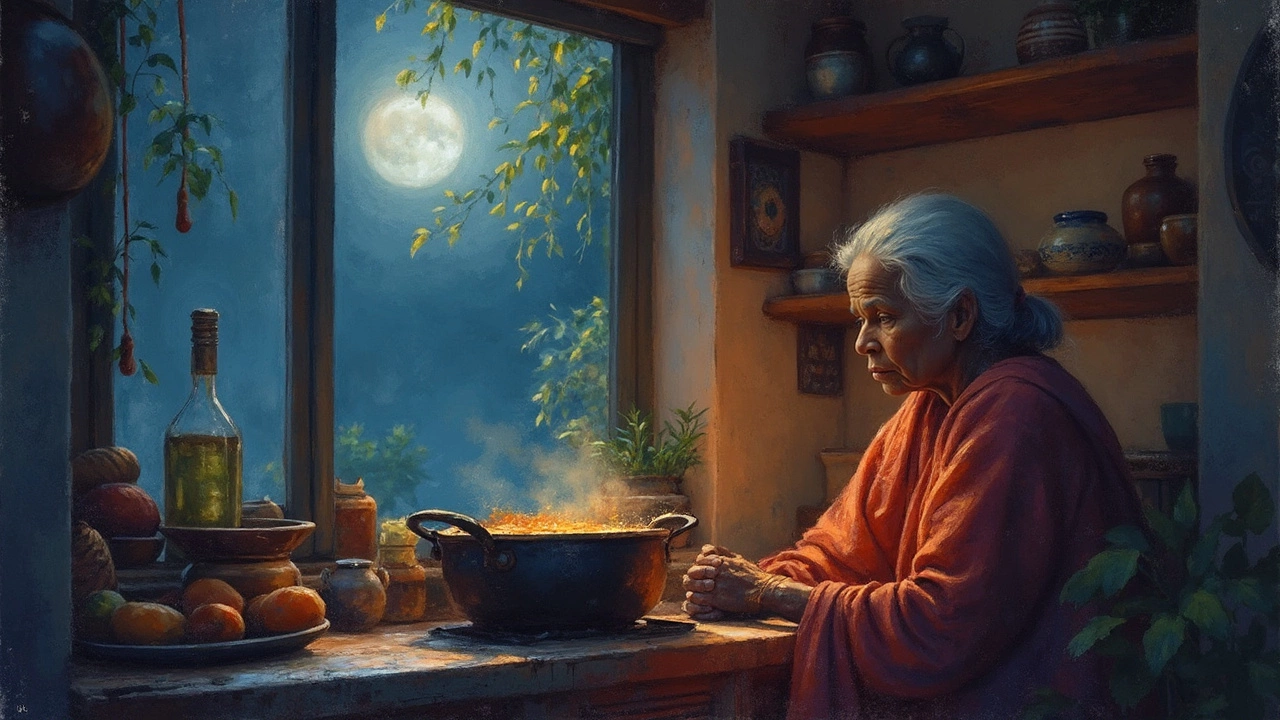Why should we stay away from eating dal at night? It sounds odd, especially since dal is such a staple in our kitchens. But there's some interesting science behind this advice that you might not know about.
First, let's talk digestion. Dal is loaded with proteins and fibers, which are awesome for your health, but they take time and energy to break down. Eating it late can lead to indigestion, since your body's trying to rest, not work overtime on a heavy meal. You'll probably have better luck enjoying dal during lunch when your digestive system is in full force.
Plus, let's not forget about sleep quality. Have you ever had a big meal before bed and felt sluggish or had weird dreams? Foods like dal may contribute to that. It's best to consume lighter meals at night to avoid overloading your stomach while you snooze.
Why Dal at Night?
It's all about how our body works at different times of the day. You see, digestion gets sluggish as the sun goes down. That bowl of dal you love might not sit well when eaten for dinner. It's not just any food; it's packed with protein and fiber, which are slow to digest. While that's great during the day when you need energy, at night it might lead to bloating and discomfort.
Ever wonder why you sometimes wake up feeling tired even after a long sleep? Your late-night meals, like dal, might be to blame. As your body's energies shift to repair and rest during nighttime, breaking down heavy foods becomes a demanding task. This can interrupt your sleep quality, leaving you feeling drained instead of refreshed.
How Digestion Changes at Night
During nighttime hours, our metabolism naturally slows down, preparing us for rest. Eating something rich in fiber and protein, like dal, requires more effort from your digestive system. This can lead to indigestion and make you toss and turn all night.
Impact on Sleep
Having dal at night may interfere with your sleep cycle. Poor sleep can lead to various health issues, affecting concentration, mood, and overall well-being. It's not just about avoiding dal; larger meals in general should be reconsidered before bedtime.
Mindful Eating
Instead of having dal at dinner, you might want to switch it to lunchtime. Your body will thank you with better digestion and energy use at the right time. It's not about cutting it out entirely but about making mindful choices that fit your lifestyle.
With these insights, you now know why dal is better suited for earlier in the day. Who knew timing could make such a difference?
Digestion and Sleep
Getting a good night's sleep goes hand in hand with proper digestion, but munching on dal late at night can throw a wrench in both. Our digestive system slows down as the day winds to a close, so heavy or nutrient-dense meals can make it work harder during bedtime.
How Dal Affects Digestion
When we eat dal, the body has to dedicate time and energy to break down its high-fiber and protein content. In fact, fibre and protein-rich foods significantly slow your digestion rate, which is beneficial during the day but might cause discomfort or bloating if consumed just before bed.
"A meal high in proteins and fiber can take up to six hours to fully digest," states Dr. Anjali Mukherjee, a renowned nutritionist.
Impact on Sleep Quality
Ever wonder why you feel sluggish after a nighttime feast of dal and rice? The energy put forth into digesting these meals can disrupt your sleep patterns. Your body needs to rest and recover, not focus on metabolism.
Ideally, your largest meals should be consumed earlier in the day. Your digestive system is more efficient during these times, easing the strain while you snooze. A lighter dinner can promote deeper and more restful sleep.
Tips for Better Digestion and Sleep
- Plan your dal dishes for midday to take advantage of your digestive peak.
- If you crave dal at night, consider smaller portions or try pairing it with easily digestible foods like steamed veggies.
- Experiment with different legumes; some, like green gram, are lighter and easier on the stomach.
By eating properly and leaving the heavy stuff for daylight hours, you won't just aid your digestion, but also enjoy a much more pleasant and restful sleep. After all, who doesn't want to start the day feeling refreshed and light?

Nutritional Aspects
Dal is amazing when it comes to nutrition. It's a powerhouse of protein, especially for those who follow a vegetarian diet. Protein is vital for building muscles, repairing tissues, and keeping our overall health in check.
Not just protein, dal is packed with dietary fiber. Fiber is your gut’s best friend, helping keep the digestive system running smoothly. It can also help control blood sugar and lower cholesterol levels. So, enjoying dal during the day really gives you these benefits when your body is ready to absorb them.
Essential Vitamins and Minerals
Besides protein and fiber, dal contains a bunch of essential vitamins and minerals. It’s got B vitamins like folate and B6, which help in converting food into energy. Plus, it's a good source of iron and potassium. Iron is crucial for blood health, and potassium helps keep your heart and blood pressure in check.
The Calorie Count
You might be thinking about calories now. A serving of dal is often low in calories but dense in nutrients, making it a great part of a balanced diet. It's all about balance, though, so be mindful about portions, especially at night.
Here's a quick look at the nutrition breakdown for a standard serving of dal:
| Nutrient | Amount per 100g |
|---|---|
| Calories | 116 kcal |
| Protein | 9g |
| Fiber | 8g |
| Iron | 3 mg |
| Potassium | 369 mg |
All these factors make dal a superstar in the Indian cuisine pantry, but timing is key. Enjoy its benefits at the right part of the day, so your body can make the most out of these nutrients.
Alternative Meal Ideas
If you're thinking about skipping dal at dinner to sleep better, you're probably wondering what else you can have. Let's dive into various options that are light, nutritious, and super easy to prepare.
Light Soups and Salads
When it comes to soups, think clear and broth-based ones. Options like tomato soup with basil or a simple vegetable broth work wonders. Pair it with a fresh salad—maybe a mix of leafy greens, cucumbers, and a squeeze of lemon. It’s light, satisfying, and gentle on your system.
Quick Stir-Fries
Stir-fries are amazingly versatile. Toss some chopped veggies like bell peppers, carrots, and snow peas in a pan with a dash of soy sauce or teriyaki. Add tofu for a protein kick. It cooks in minutes and keeps you full without the heaviness.
Whole Grain Options
Whole grains can be your best friend. Consider quinoa or couscous tossed with steamed veggies and a sprinkle of feta cheese. It's healthy, light, and tasty.
Simple Grilled Proteins
If you're a fan of chicken or fish, try grilling a small portion. Season with herbs like rosemary or thyme, and serve with a side of steamed broccoli or asparagus. A light protein that won't weigh you down during the night.
Snacks for Night Owls
Sometimes you just need a little snack before bed. Go for options like a small bowl of oatmeal, a handful of almonds, or a banana. These options can satisfy hunger without disrupting sleep.
| Meal Component | Recommended Calorie Intake |
|---|---|
| Dinner | 300-500 |
| Snack | 100-200 |
So, there you have it. A mix of delightful dishes to keep your evenings peaceful and your tummy happy. Ditching dal at night doesn’t mean missing out on a tasty meal!
